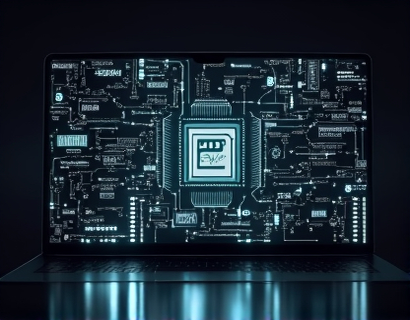Unlocking Anonymous Excellence: Cutting-Edge Pseudonym Software for Secure Blockchain and AI Operations
In the rapidly evolving landscape of technology, the need for digital privacy and security has become paramount, especially in the realms of blockchain and artificial intelligence. As more individuals and organizations delve into these complex domains, the importance of maintaining anonymity while complying with regulatory standards cannot be overstated. This article delves into the innovative software solutions designed to create and manage secure pseudonyms, ensuring that users can engage in blockchain and AI operations with unparalleled privacy and security.
The concept of using pseudonyms in digital transactions and interactions is not new, but the advancement in technology has made it more sophisticated and essential. Pseudonyms serve as a layer of anonymity, allowing users to conduct operations without revealing their true identities. However, the challenge lies in creating and managing these pseudonyms in a way that is both secure and compliant with regulatory requirements. This is where cutting-edge pseudonym software comes into play, offering a robust and seamless solution for tech-savvy individuals in the blockchain and AI sector.
One of the primary benefits of using pseudonym software is the ability to maintain privacy while adhering to stringent regulatory standards. In the blockchain space, regulations such as the General Data Protection Regulation (GDPR) in Europe and the California Consumer Privacy Act (CCPA) in the United States impose strict requirements on data handling and user anonymity. Similarly, in AI operations, data privacy and ethical considerations are increasingly becoming focal points. Pseudonym software ensures that users can navigate these regulatory landscapes without compromising on security or functionality.
Let's explore how this advanced software works. At its core, the platform generates unique pseudonyms for each user, which are linked to their blockchain or AI operations. These pseudonyms are cryptographically secure, meaning they are nearly impossible to trace back to the user's real identity. The software employs state-of-the-art encryption techniques to protect the pseudonyms, ensuring that even if intercepted, the data remains indecipherable.
The process of creating a pseudonym is straightforward. Users interact with the software through a user-friendly interface, providing necessary information to generate a pseudonym. The software then creates a unique identifier that is used for all subsequent operations. This identifier is stored in a decentralized manner, further enhancing security and reducing the risk of a single point of failure. The decentralized storage ensures that even if one part of the system is compromised, the entire pseudonym network remains secure.
One of the key features of this pseudonym software is its seamless integration with existing blockchain and AI platforms. Whether you are using Ethereum, Binance Smart Chain, or any other blockchain, or working with machine learning frameworks like TensorFlow or PyTorch, the software adapts to your specific needs. This flexibility is crucial for users who operate across multiple platforms and require a unified solution for managing their pseudonyms.
Security is a top priority in the development of this software. The platform employs multi-layered security protocols to protect user data and pseudonyms. These protocols include but are not limited to, zero-knowledge proofs, which allow users to verify transactions without revealing any additional information, and homomorphic encryption, which enables computations on encrypted data without decrypting it first. These advanced techniques ensure that user data remains confidential and tamper-proof.
Compliance with regulatory standards is another critical aspect of the software. The platform is designed to meet and exceed the requirements of various global regulations. For instance, it ensures that user data is handled in accordance with GDPR principles, providing users with control over their personal information and the ability to request data deletion. Similarly, it aligns with CCPA requirements, offering transparency and user empowerment in data management.
The benefits of using pseudonym software extend beyond just privacy and security. For businesses and developers in the blockchain and AI sectors, it opens up new possibilities for innovation and growth. By maintaining anonymity, organizations can experiment with new ideas and technologies without fear of reputational damage or legal repercussions. This freedom can lead to breakthroughs in areas such as decentralized finance (DeFi), smart contracts, and AI-driven decision-making systems.
Moreover, the software enhances trust among users and stakeholders. In a world where data breaches and identity theft are common concerns, the ability to operate anonymously while still complying with regulations can significantly boost confidence in blockchain and AI applications. This trust is essential for the widespread adoption of these technologies, as it reassures users that their privacy and data are protected.
From a technical standpoint, the pseudonym software is built on a robust architecture that ensures scalability and reliability. The decentralized nature of the pseudonym network means that it can handle a large number of users and transactions without performance degradation. The software is also designed to be future-proof, with regular updates and enhancements to stay ahead of emerging threats and regulatory changes.
For developers and tech enthusiasts, integrating this pseudonym software into their projects is a straightforward process. The platform provides comprehensive documentation and API access, making it easy to incorporate into existing systems. The community around the software is also active, with forums and support channels where users can share insights, report issues, and collaborate on improvements.
In conclusion, the cutting-edge pseudonym software represents a significant advancement in digital privacy and security for blockchain and AI operations. By providing a secure, compliant, and seamless way to manage pseudonyms, it empowers users to engage in digital transactions and interactions with confidence. As the demand for privacy and security continues to grow, solutions like this will play a crucial role in shaping the future of technology.










































